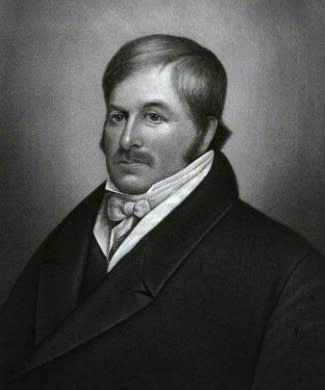On this day: Michigan’s first election aims to bring order to chaos

- Oops!Something went wrong.Please try again later.
GRAND RAPIDS, Mich. (WOOD) — We are less than a year away from another presidential election, which is sure to be full of attack ads, half-truths, outright lies and good old-fashioned politicking. Political discourse has certainly changed over the last few decades, but some of the ugly parts of the American election process have been there from day 1.
You can even see shades of it in Michigan’s very first election, held on Dec. 17, 1798, 225 years ago today.
The United States was still in its infancy. The Americans had defeated the British in the Revolutionary War, but the fight for the territory was far from settled. British officials abandoned Fort Lernoult (later renamed Fort Shelby and eventually Fort Detroit) in 1796.
Matthew Daley, a professor of history at Grand Valley State University, said the territory’s first leaders faced a monumental task.
Long live the king: James Jesse Strang and Michigan’s last brush with ‘royalty’
“The British had just left. And when the British left, they left a real mess,” Daley told News 8. “John Francis Hamtramck had come in for the U.S. military to take control of the fort. (The British) kind of trashed the fort. Most of Detroit is French speaking, but it has British law. Lots of the British were closely allied with the Anishinaabe community, the Native Americans around Detroit. And they only moved across the river. (The British) are looking at you right across the way, hoping that they are going to come back.”
What is now established as Michigan, along with Indiana, Illinois, Ohio, Minnesota and Wisconsin were part of the “Northwest Territory.” American leadership worried that any sort of power vacuum in key areas there could give the British an opportunity to try and retake control.
According to Willis Dunbar’s and George May’s “Michigan: A History of the Wolverine State,” thousands of settlers flocked to the Northwest Territory. The goal was to move the region closer to statehood, and hopefully, discourage the British from trying to retake the land.
To establish order, Arthur St. Clair, the appointed governor of the Northwest Territory, needed to establish some form of legislative body.
“The Northwest Ordinance says, ‘This is what you need. This is how you structure it. You have to create a legislature. You have to establish some laws. You have to have courts and due process.’ The legislature is going to do all of that,” Daley said.
‘WE WOULD NOT RECOGNIZE THEM’
An election for the delegate seat to represent Wayne County was set for three days, December 17, 18 and 19, but that wasn’t the only difference compared to today’s elections.
For one, it was held at a tavern in Detroit, primarily because it was the largest local gathering space. Candidates spent the three days making long speeches, explaining their stances and criticizing their opponents, all while people cast their votes. And most people didn’t cast a paper ballot. Many people actually simply announced their selection out loud.

The two leading candidates to emerge were Solomon Sibley and James May.
May, a former British subject, was a trader and “power broker” who got a lot of support from the area’s British residents. While Sibley, from Massachusetts, was a lawyer who made his way west. He was supported primarily by Americans and French residents.
May accused Sibley of rigging the election by buying drinks for voters and hiring soldiers to hold clubs and intimidate voters into supporting him.
“If you watched the elections at this time, especially in this place, we would not recognize them,” Daley said. “What’s the election security? Two guys with knives at the front door. … It would look really strange to our eyes today. We would almost call it political violence. It’s just raw. Some of it is insinuated, and some of it is just blatant, crude arm twisting.”
It wasn’t full of cowboys, cathouses and saloons, but at this time Michigan was the Wild West.
“It’s different than Ohio. … Ohio is right next to Pennsylvania, what is (now) West Virginia. You have had settlement there since around the 1730s,” Daley explained. “(In Michigan), most of them had not been there for more than a year. … How does it work? Nobody really knows. I always tell people the early Republic, for my money, 1789 through about 1850 is crazy interesting because no one had done this before.”
Up in smoke: Reliving the fire that destroyed iconic Hotel Ottawa
Whether the allegations were true or not, Sibley won the seat and went on to a storied career in politics. He helped incorporate Detroit as a town in 1802 and was selected to be the city’s first mayor in 1806 before moving to several prominent positions across the territory.
According to Dunbar and May, James May ran for election to two seats in the Legislature the following January but lost again. He was, however, eventually tapped for a leadership role in the territory’s early days, serving as the chief justice of the court of common pleas for seven years.
May died in 1829, but Sibley lived long enough to see Michigan expand from a territory to statehood. He died on April 4, 1846.
For the latest news, weather, sports, and streaming video, head to WOODTV.com.

